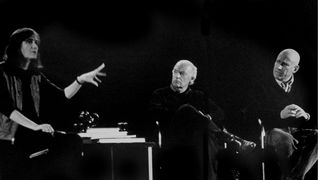
By Amy Goodman with Denis Moynihan
For the first time in more than half a century, the presidents of the United States and Cuba have had a formal meeting. Barack Obama met with Cuban President Raul Castro at the 7th Summit of the Americas, held this year in Panama City. Cuba’s participation has been blocked by the U.S. since the summit began in 1994. This historic moment occurs with some sadness, however: Eduardo Galeano, the great Uruguayan writer who did so much to explain the deeply unequal relations between Latin America and the U.S. and Europe, died as the summit ended.
Galeano’s best-known book is “Open Veins of Latin America: Five Centuries of the Pillage of a Continent.” It was published in 1971, and was among the first to explain the impact of colonial domination of the hemisphere, across the broad sweep of history. Galeano himself was swept away by events as well. He wrote the book “in 90 caffeinated nights,” he said, “to interlink histories that have been before told separately and in this codified language of historians or economists or sociologists. I tried to write it in such a way that it could be read and enjoyed by anyone.”
The book’s success made him a target, as U.S.-sponsored coups toppled democratic governments in the region. He was imprisoned in Uruguay, then, after release, began a life in exile. He settled in Argentina, where he founded and edited a cultural magazine called Crisis. After the U.S.-backed military coup there in 1976, Galeano’s name was added to the list of those condemned by the death squad. He fled again, this time to Spain, where he began his famous trilogy, “Memory of Fire,” which rewrites North and South American history.
And now, a piece of that history is being rewritten, between the United States and Cuba. President Obama has sent a State Department report to Congress, which recommends that Cuba be removed from the official U.S. government list of nations that sponsor terrorism. The peace group CODEPINK applauded the move, saying in a statement, “The infamous U.S. terror list includes only three other nations: Iran, Sudan, and Syria and curiously omits North Korea.
Many people around the world found it hypocritical for the United States to single out Cuba while ignoring support for terrorism by U.S. allies such as Saudi Arabia, Pakistan, Egypt and Israel, especially since Cuba is known for exporting doctors, musicians, teachers, artists, and dancers — not terrorists.”
I asked a former Cuban diplomat in Havana, Carlos Alzugaray Treto, for his reaction to the critics of Obama removing Cuba from the terrorism list, like Republican Senator, and now presidential candidate, Marco Rubio, a Cuban-American from Florida. Alzugaray said Rubio “should worry about having terrorists, a terrorist like Luis Posada Carriles, living in Miami. He has the terrorism not 90 miles from Florida; he has one in Miami. He doesn’t complain.” Luis Posada Carriles was a CIA operative who admitted to masterminding the bombing of a Cubana Airlines jet in 1976, killing all 73 people on board. Venezuela has long sought his extradition, but the U.S. government refuses to comply, leaving Carriles a free man living in Miami.
The U.S. embargo against Cuba, one of the most enduring and punishing relics of the Cold War, remains in place, however. This central pillar of a half-century of hostile U.S. policy toward Cuba is increasingly unpopular here. The U.S. business community is tired of losing out on opportunities that are enjoyed by investors from Canada, Europe, Japan and China. The U.S. Chamber of Commerce hailed President Obama’s moves to normalize relations. Businesses like Facebook and Airbnb are in Cuba and planning on expanding, as soon as it is legal to do so. Deputy National Security Adviser Ben Rhodes said recently, “Our Cuba policy, instead of isolating Cuba, was isolating the United States in our own backyard.” And President Obama, when announcing his intention to normalize relations with Cuba last December, admitted, “When what you’re doing doesn’t work for 50 years, it’s time to try something new.”
The Summit of the Americas has ended, and the trajectory of U.S./Cuban relations is on a new course. When Obama first attended the summit, in 2009, the late Venezuelan President Hugo Chavez handed him a copy of “Open Veins of Latin America.” If he hasn’t already, Obama should read the book. As British writer John Berger has said of Eduardo Galeano, “To publish Eduardo Galeano is to publish the enemy: the enemy of lies, indifference, above all of forgetfulness. Thanks to him, our crimes will be remembered. His tenderness is devastating, his truthfulness furious.”
R.I.P. Eduardo Galeano. There are probably few things that would make him happier than if the embargo were buried as well.
Subscribe to Amy Goodman’s podcast on SoundCloud and Stitcher Radio.











Media Options